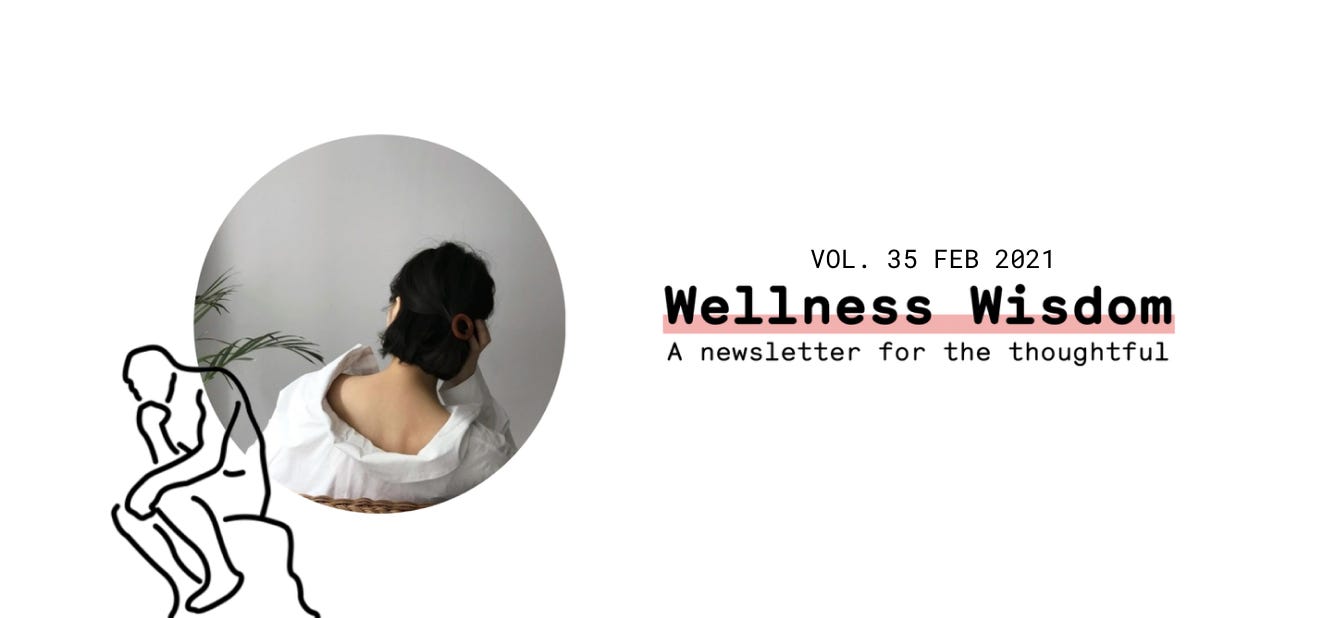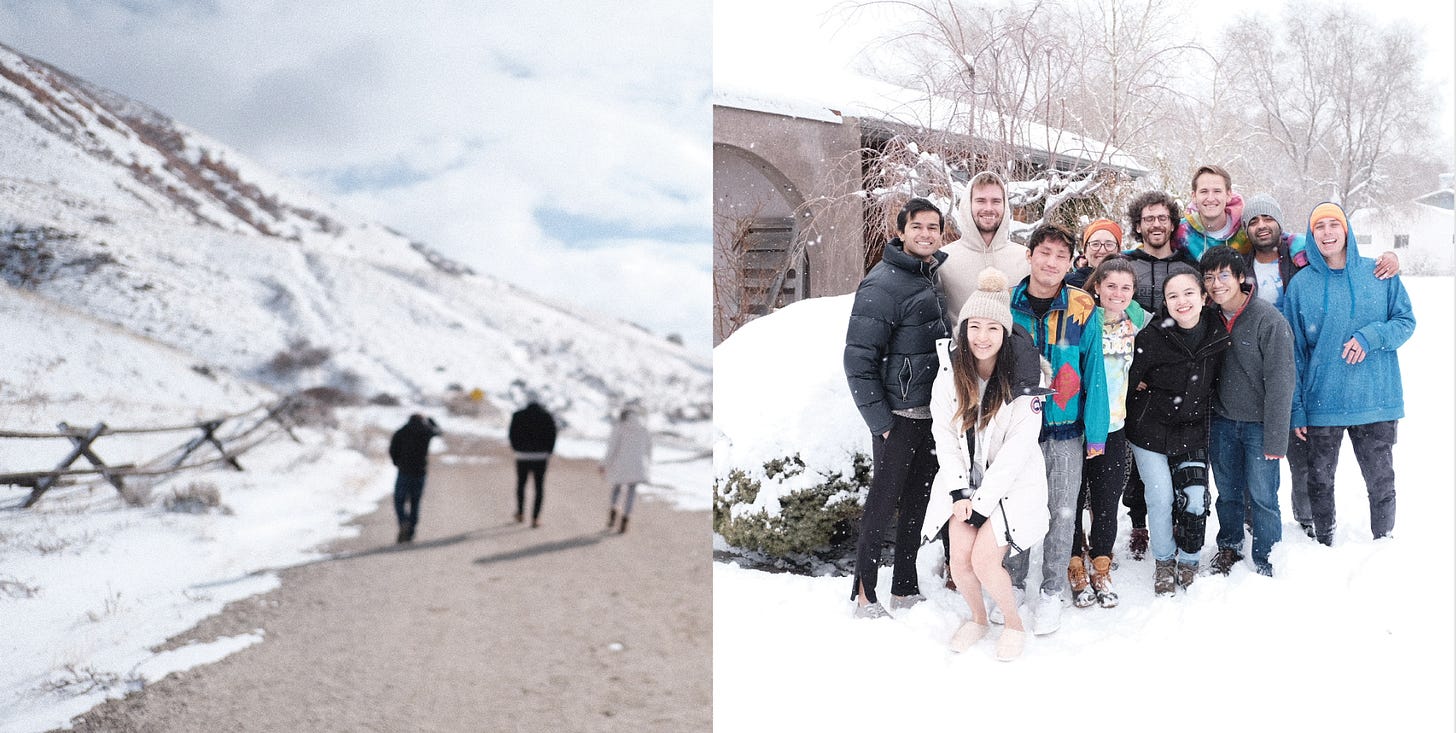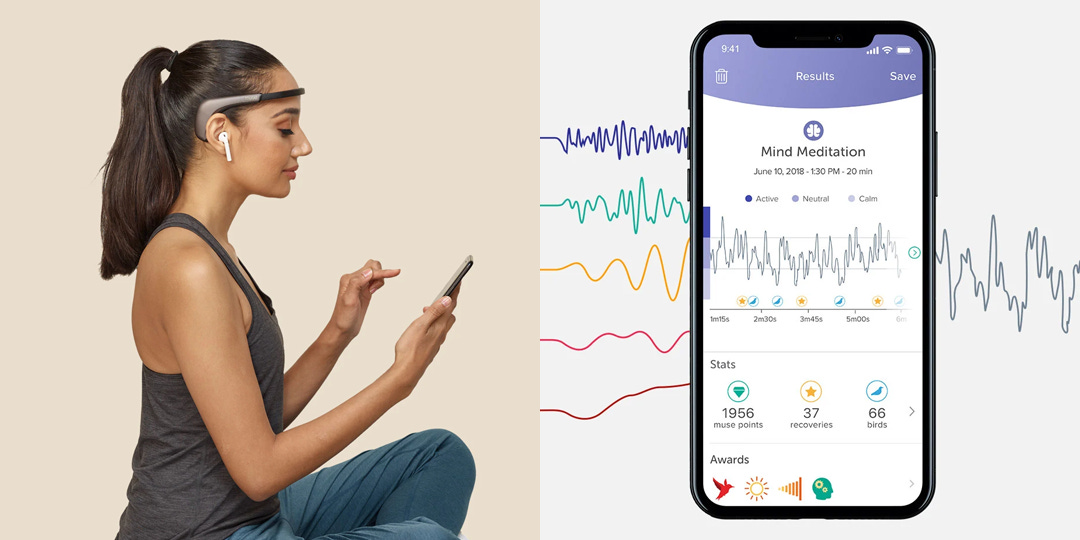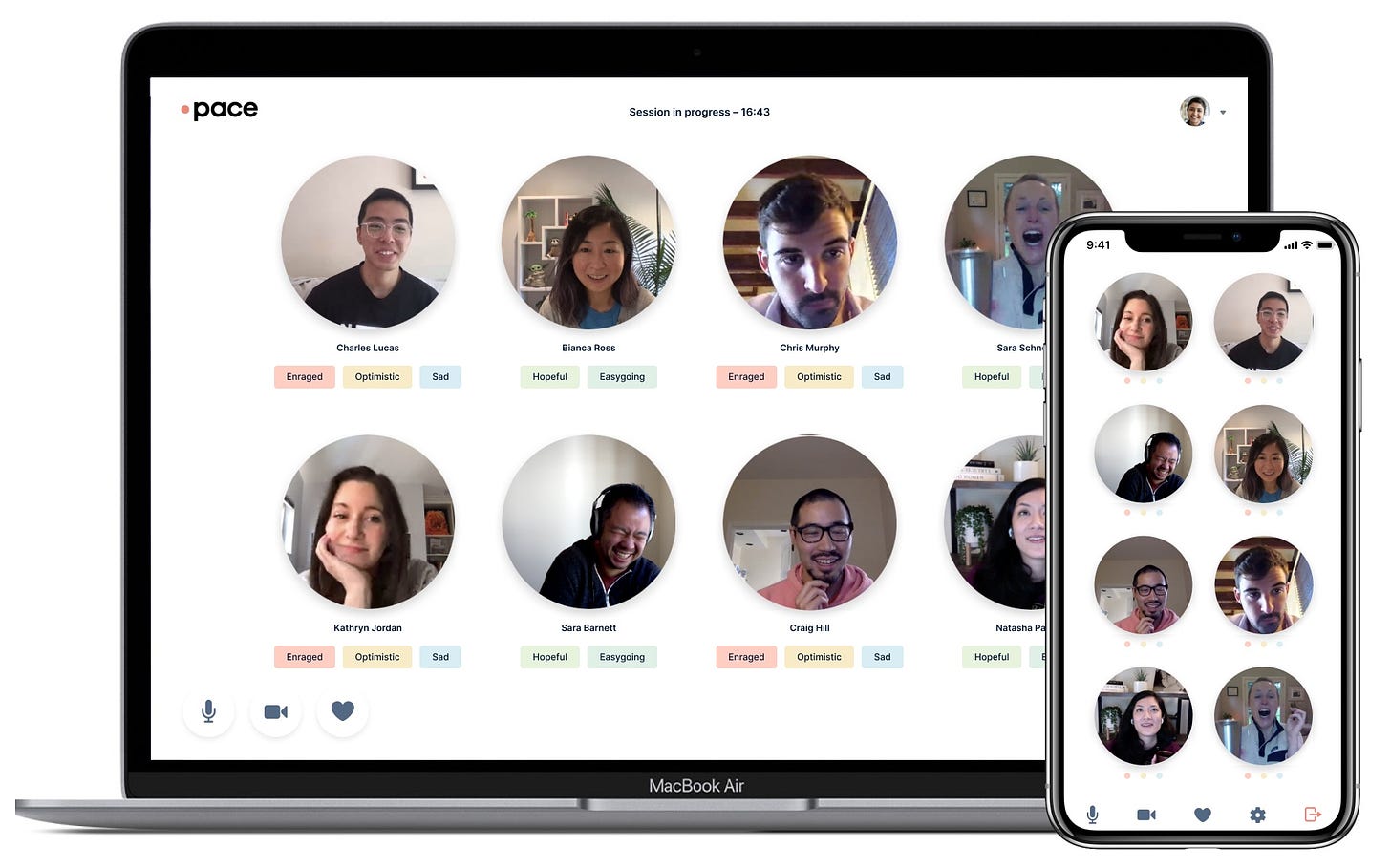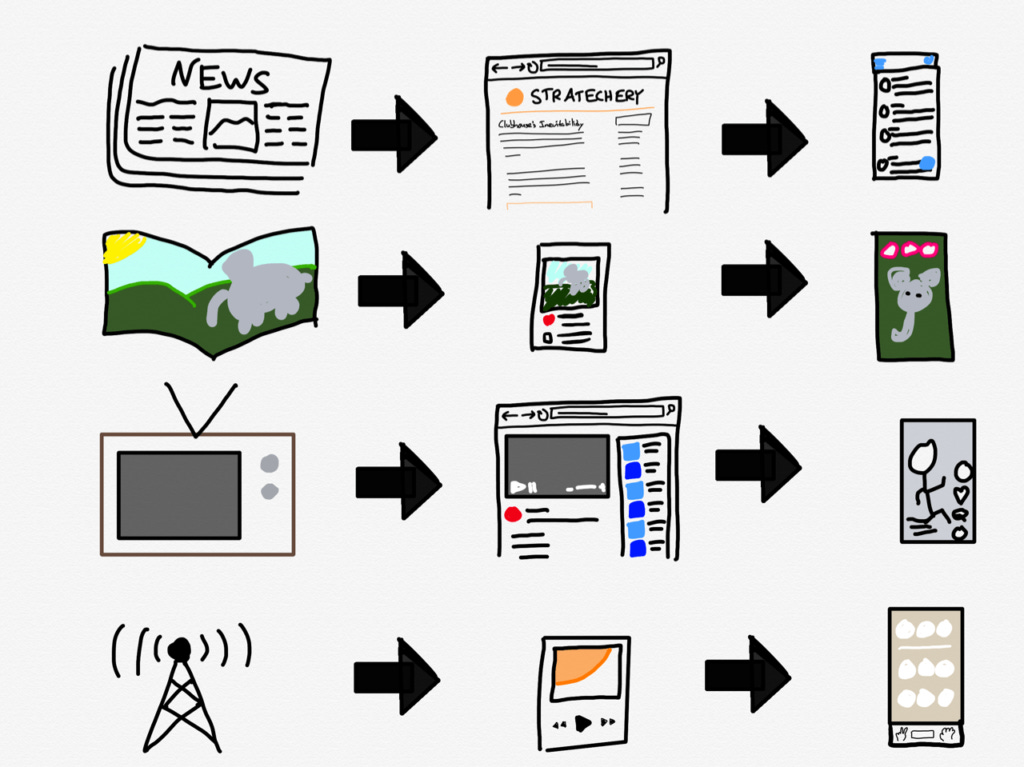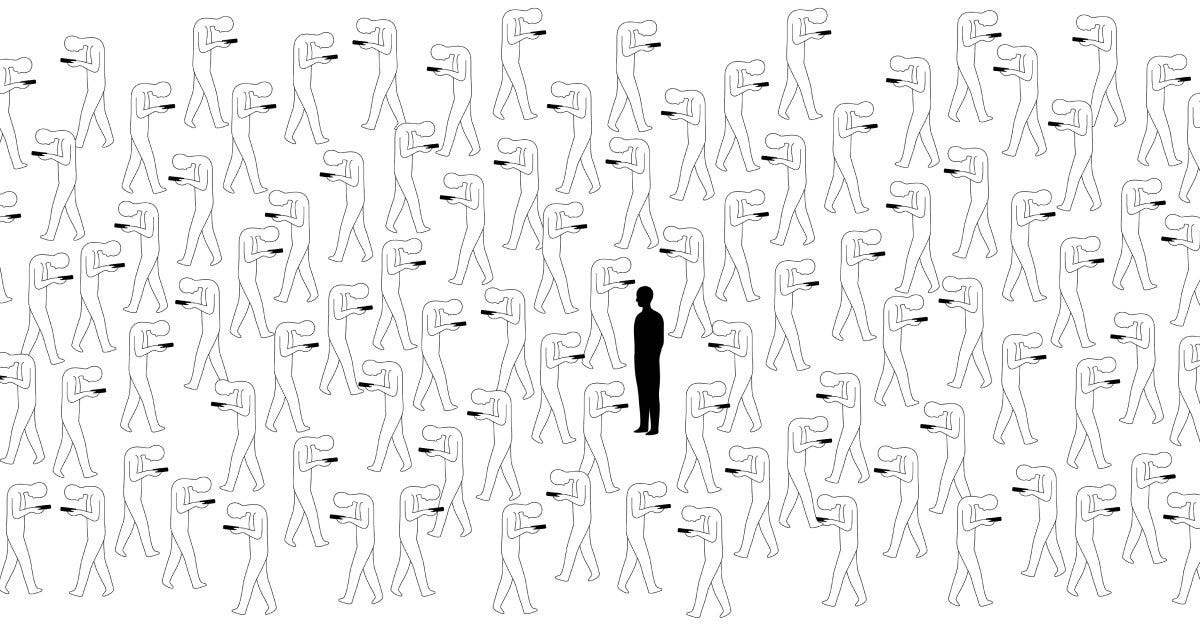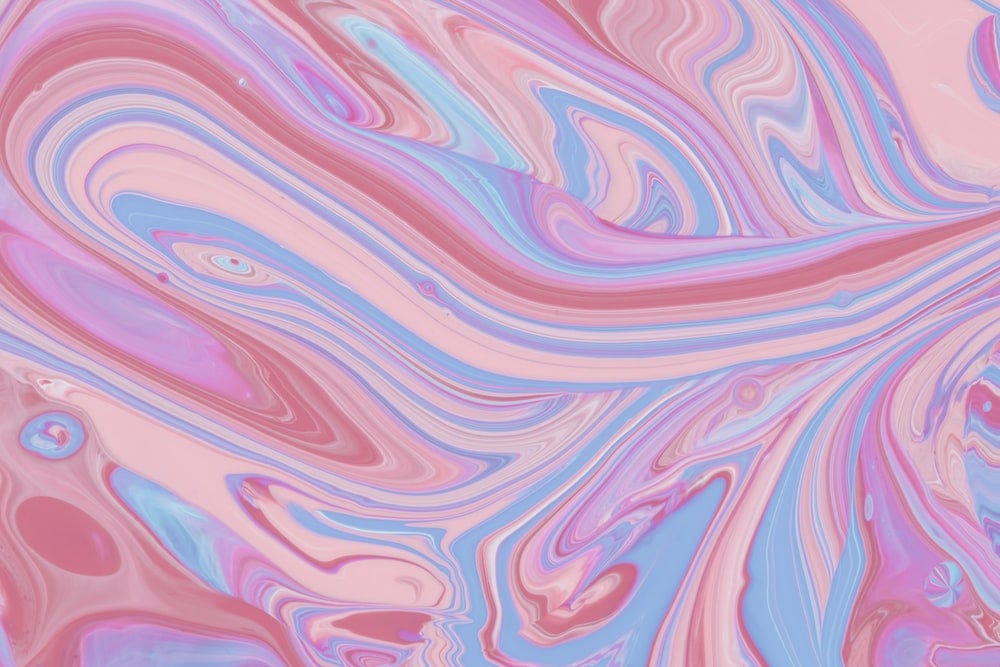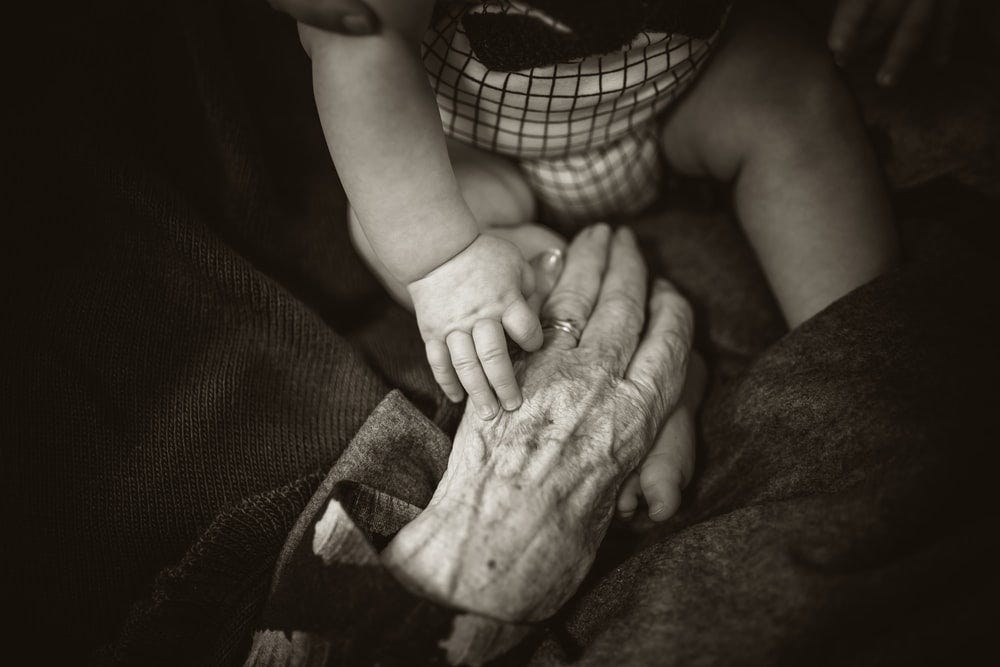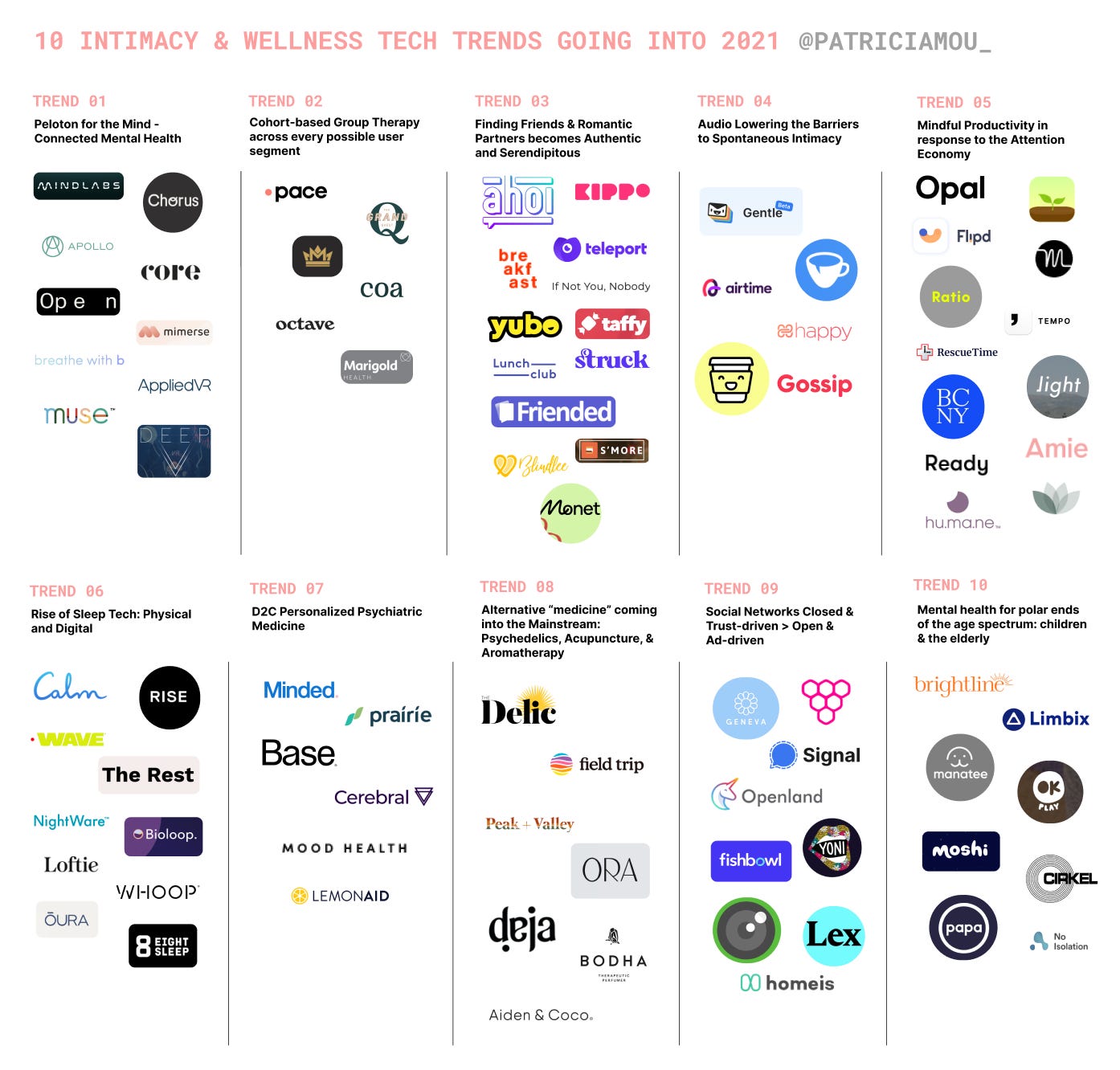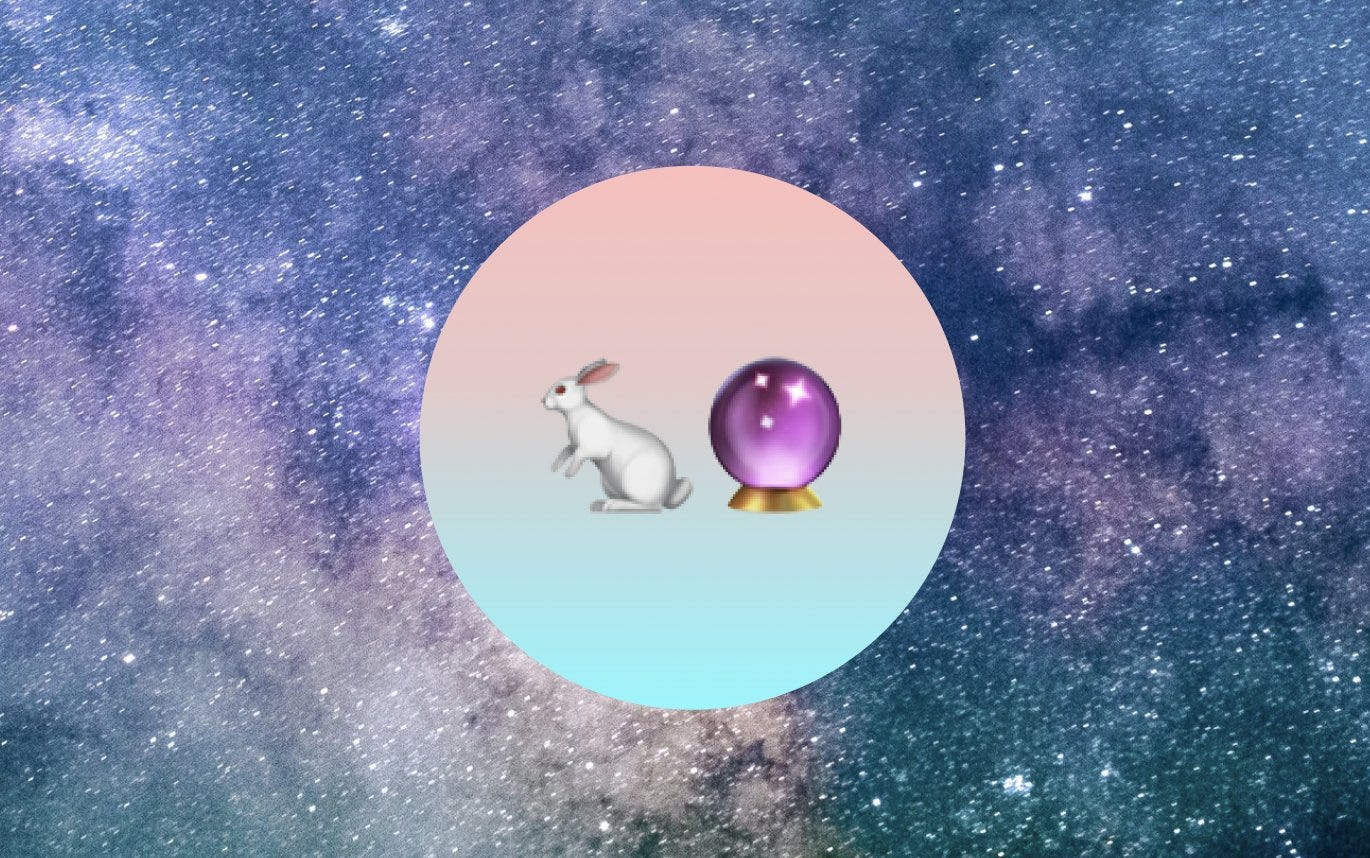trends in wellness & intimacy tech
my predictions, sci-fi lo-fi beats, & anti-goals
Welcome to Wellness Wisdom - A newsletter for the thoughtful. A medley of resources and thoughts on wellness start-ups, personal development, spiritual growth and philosophy.
Support this publication by joining me down the rabbit hole. 🐇🔮
Hello thoughtful humans! ❄️
Currently (still) in Salt Lake City and listening to Calm’s DeadMau5 flow playlist.
Wrapping up almost 2 months in this powdery winter wonderland. Grateful to have lived with such inspiring and kind people for a bit - the brainstorms, snowball fights, hikes, cooking competitions, & all around ⚡️ vibes. A special kind of magic arises when you put 12 weirdos under one roof (13 spoken languages, 15 programming languages), all united by the desire to create and grow.
Today’s newsletter:
my take on 10 wellness & intimacy tech trends going into 2021
the power of anti-goals
sci-fi lo-fi beats
10 Wellness & Intimate Tech Trends going into 2021
Peloton for the Mind: Connected Mental Health
Cohort-based Group Therapy across every possible user segment
Finding Friends and Romantic Partners becomes Authentic and Serendipitous
Audio Lowering the Barriers to Spontaneous Intimacy
Mindful Productivity in response to the Attention Economy
Rise of Sleep Tech: Physical and Digital
D2C Personalized Psychiatric Medicine
Alternative “medicine” coming into the Mainstream: Psychedelics, Acupuncture, Adaptogens & Aromatherapy
Social Networks: Closed & Trust-driven > Open & Ad-driven
Mental health for polar ends of the age spectrum: children & the elderly
01. Peloton for the Mind: Connected Mental Health
Peloton addressed physical fitness by combining smart stationary bikes with live classes and community features to create an engaging experience.
A similar approach will be applied to mental wellness.
As application of EEG brain activity sensors & HRV to mental health becomes more rampant, consumer adoption will increase.
Because mental improvement is hard to see, devices that close this loop through bio-feedback will make mental wellness as measurable as physical fitness.
Players in the space
MindLabs - Building the world’s first live mental health platform
Muse - brain-sensing headband that tracks sleep & meditation
Open & Chorus - Live / synchronous virtual meditation, breathwork, and yoga sessions
Apollo - wearable wellness device that uses gentle vibrations to help your body recover from stress.
Core - meditation trainer that uses dynamic vibrations and feedback to help you relax, focus and stay consistent.
breath with b - uses patent-pending technology to guide in breathing.
Deep VR - is a meditative virtual reality game controlled by breathing.
Mimerse - A VR platform for evidence based apps that can improve, manage and treat the minds of millions.
Applied VR - the 1st company to make VR widely available in clinical care.
Flow - brain stimulation headset used to reduce depression.
02. Cohort-based Group Therapy across every possible user segment
For many, individual 1-1 therapy is financially inaccessible. Group therapy lowers the cost of access, while combining the therapeutic benefits of authentically connecting to a community.
Start-ups will play both a role in the creating the underlying tech stack for these online gatherings (payments, scheduling, etc.), and enabling the discovery and pairing of patient to other patients and practitioners.
Furthermore, we’ll begin to see group-based cohorts aimed at every demographic, stage in life, mental health illness, occupation, etc.
Players in the space
Pace Group - cohort-based therapy for moms, career changers, dating, divorce, and founders.
Marigold Health - infrastructure powering chat-based mental health peer groups
The Grand World - peer-based cohorts aimed at career transitions
Coa - emotionally fit leadership group series
Octave - discovering group-based therapy in SF and NYC
Be Maximus - group program to make better men in mind & body
03. Finding Friends and Romantic Partners becomes Authentic and Serendipitous
Social media has morphed our digital presence into manicured status boxes and pixel-perfect filtered squares.
We’re now more ready than ever to connect with others authentically (with all our idiosyncrasies) and serendipitously (outside our immediate social graph).
Finding friends
Ahoi - live video chat app to meet new people with the same interests from all over the world.
Friended - meet new people through authentic icebreakers
The Breakfast - app that connects you to an awesome human to have breakfast with, only once a day.
Yubo - social discovery app for teens that feels like an internet forum
LunchClub - AI-driven networking
Finding romantic partners
Teleport - connecting people through video-first dates
Blindlee - connect over 3-min blurred video calls
Monet - finding love through drawing
Kippo - dating app for gamers
Stuck - astrology-based matchmaking app
Inyn & Taffy - gradually shows you the profile of the person as you converse more
S’more Date - indexes towards self-expression: hear voice, favorite music, etc.
04. Audio Lowering the Barriers to Spontaneous Intimacy
Some of the most groundbreaking consumer products in the past decade won through successfully lowering the barrier to creation, so that anyone could be a photographer (Instagram), Videographer (TikTok), and Writer (Substack).
Through the recent rise of podcasts and Clubhouse, the voice has now lowered the barriers for connection and intimacy.
The immediacy of someone’s voice may be far more meaningful than words on a screen. Instantaneous audio will become the love language of the digital realm.
Players in the space
7cups & Happy - connects you to caring listeners for free emotional support
Cappuccino - A daily personal audio show featuring your friends
Gentle - A social app to send and receive messages of compassion.
The Gossip - create and share voice stories
Airtime - audio rooms with friends
05. Mindful Productivity in response to the Attention Economy
With the neutral POV of many tech platforms, the burden to prune ones digital consumption diet and limit its pervasiveness falls upon the consumer.
As a result, more tools will emerge to help us reclaim our time and give us psychological freedom. These include digital wellness trackers, mindfulness apps, and programmable attention tools.
Players in the space
RescueTime & Opal - Automatically tracks the time you spend on websites and gives you the ability to block yourself from accessing them.
Flipd & Forest app- gamifies getting into flow by enabling you to track your productive minutes and competing on community leaderboards.
The Browser Company & InMotion- are building a better browsers that can help us stay in flow.
Tempo - minimalist email client.
Blloc - minimalist phone homescreen.
The Light Phone - minimalist phone.
Centered - minimalist to-do tracker.
Hu.ma.ne - in stealth. aims to build tech to help humans get back in touch with ourselves and others.
06. Rise of Sleep Tech: Physical and Digital
Meditation is a vitamin, sleep is a pain-killer.
Meditation is aspirational. Sleep is foundational.
From hustle culture to the rise of holistic wellness, America is now woke (literally, heh) to the importance of sleep.
Sleep underlies overall wellbeing, yet as the saying goes.. you can’t improve what you can’t track. Tech is now rushing in to bolster our sleep practice with data, self-awareness, and tools.
Players in the space
Rise - sleep tracker that tracks sleep debt and your circadian rhythm
Calm - sleep stories to help you fall asleep
Wave Sleep - live guided sleep sessions every evening at 9pm
The Rest - sleep classes and live peer groups
Bioloop Sleep - 1-1 sleep coaching
Night-ware - leverages apple watch tech to help those suffering from traumatic nightmares
Loftie - redesign of the alarm clock
EightSleep - iOT mattress that helps you sleep better
07. D2C Personalized Psychiatric Medicine
1 in 6 Americans take a psychiatric drug.
Think going to therapy is hard? Vetting psychiatrists (more stigmatized than therapy), staying on top of filling prescriptions, and adjusting medication amounts, is even harder.
Unlike other types of medication, psychiatric medication dosage, symptoms and efficacy, vary person to person.
Often times, patients are started on either the wrong type of medication or too high of a dosage. They subsequently discontinue the medication (and their recovery) due to easily-preventable side effects.
A new wave of tech companies will emerge to ease the painpoints throughout the medication titration and management process.
Players in the space
Moodhealth, Cerebral, & TryMinded - personalized quiz for psychiatrist matching and D2C medication delivered to your door.
Base - the 23&me for mental health (sleep, stress, energy, diet, sex drive)
Prairie Health - patients take a DNA test to help doctors determine the right psychiatric medication and dosage, followed by monthly video counseling.
08. Alternative “medicine” coming into the Mainstream: Psychedelics, Acupuncture, Adaptogens & Aromatherapy
The efficacy of psychedelics towards mental health disorders have recently been brought more prominently into the public eye through books by Michael Pollan, Ayelet Waldman, and Tao Lin. FDA studies have shown their efficacy on depression and PTSD in controlled environments. More recently, Oregon legalized psilocybin in supervised and licensed therapy sessions.
Similar to cannabis, a new wave of start-ups will support its distribution and education. This also applies to traditional Chinese medicine, acupuncture, traditional Indian medicine (Ayurveda), adaptogens and aromatherapy.
Players in the space
The Delic - curated online gallery that helps you find your experience
Field Trip & Mind Bloom - matching service of psychedelic-enhanced psychotherapy
Peak + Valley - adaptogens, herbs and medicinal mushrooms
Ora - acupuncture clinic
Deja - ayurveda supplements
Bodha, Aiden & Coco - D2C aromatherapy
Kensho - search engine for holistic health providers
09. Social Networks: Closed & Trust-driven > Open & Ad-driven
As the 2000’s have demonstrated, our digital social networks have a major impact on our mental health.
The major change between the social networks of the 90s and the social networks of today is capitalism. In the early social media days, you made money by creating a place where people felt like home.
Today social media is driven by ads and feels like an obligation.
The next decade of social media will move from:
open → exclusive/semi-private/niche
many connections → fewer, deeper connections
curated by algorithms → curated by trusted connections
ad-driven → community-owned
designed to collect data → designed for privacy
growth as key success metric → trust as key success metric
Players in the space
Geneva, Bunches, 2SWIM, Bedford, Signal, Openland - platform for private group chats
Fishbowl - professional social network
Dispo - photo-based social network
Planetary - decentralized social network
Bonfire - interest-based chat social network
Mindstreaks - meditation social network
Lex - Queer, trans, non-conforming, non-binary social network
Homeis - social network for foreign born communities
Yoni Circle - storytelling social network
Saturn - time-based social network for high schoolers
10. Mental health for polar ends of the age spectrum: children & the elderly
Verticalized wellness offerings for both children and the elderly will become crucial - especially as children become more vulnerable to mental health disorders and the elderly become increasingly isolated.
Players in the space
Moshi - sleep and mindfulness app for kids
Manatee, Brightline, & Limbix - digital therapeutics for adolescent mental health
OkPlay - personal development through story creation for kids
Weldon - (tangential) coaching for parents
Papa - pairs older adults with Papa Pals for companionship and assistance with everyday tasks.
Crikel - 1-1 connections between youth and the elderly
No Isolation - communication tech to help loneliness impacting children and the elderly.
In summary:
Overall, I’m hopeful for what’s to come and looking forward to seeing what you guys build.
Let’s put the intimate back into the internet and continue to increase the welcome in wellness :D
Know any cool companies that should be on this list? email me@patriciamou.com.
Yours,
Patricia
🤔 r/DAE Does Anybody Else? Reddit Forum
Do you think that you are the only one that does or has done something? This is the sub for you!
🤷♀️ Nobody Cares
A reminder when you're doubting yourself about a decision, or something dumb you said - nobody cares. Nobody will remember. This is liberating - hold on to it.
✨ Learn Stash
A place to discovery the best personal growth tools. They research and recommend the latest books, podcasts, apps, products & courses for your self-development journey.
❤️ Feeling Good
Justin Kan's guide on how to feel good
🔮 Harry Potter and the Methods of Rationality
The philosophy of the rationalist community told through a fan fiction version of Harry Potter
🧠 Questions
Patrick Collison's list of important questions. Some that stood out to me:
Why is there no canon for life's most important questions?
What influences when people act in accordance with their self-interest and when they don't?
What's the right way to understand and model personality?
What's the successor to the book? And how could books be improved?
The rest of the 80+ links will be shared through Rabbit Holes with Patricia 🔮🐇 this week including:
🔗 Google doc: The Great CEO Within
🔗 Farnam Street Mental Models Explained
🔗 Cognitive bias cheat sheet, simplified
🔗 A guide to find anything on the internet
🔗 Google doc: 90 page Investment Principles + Bias Checklists
🔗 A curated directory of resources and tools for low-code
May have discovered my new favorite lo-fi beats sub-genre: sci-fi lo-fi ambient. 🎶
🌌 The year is 3077 and humans populate multiple planets across the galaxy.
Synth infused Lo-Fi and Jazz Hop continues to exist on pirate radio stations.
A popular choice for space cowboys 🚀
How to live a good life? Avoid what leads to a bad life.
An idea i’ve been musing on recently is the power of anti-goals.
It’s not what you add that enriches your life—it’s what you omit.
Charle Munger once quipped: “All I want to know is where I’m going to die, so I’ll never go there.”
Greek, Roman and medieval thinkers even had a name for this approach: negative theology—the negative path, the way of renunciation, of omission, of reduction. i.e. You can’t say what God is, you can only say what God isn’t.
So what is certainly not a good life?
Alcoholism, drug addiction, chronic stress, noise, a lengthy commute, a job you despise, unemployment, a dysfunctional marriage, stupidly high expectations, poverty, debt and financial dependence, loneliness, spending too much time with moaning Minnies, over-reliance on external validation, constant self-comparisons with others, thinking like a victim, self-loathing, chronic sleep deprivation, depression, anxiety, rage and envy.
You’re probably also thinking: disease, disabilities, divorce.
However, countless studies have shown that the impact of these factors dissipates more quickly than we imagine.
In effect, the good life is about steering clear of stupidity, foolishness and trends instead of striving for ultimate bliss.
Now make your own list of what certainly makes you unhappy. Then put in systems and habits in place to minimize their prevalence in your life.
In that way, if you can systematically eliminate the downside in your life—then you’ll have a real chance of achieving a good life.
The upside will take care of itself.
Thank you for being part of The Wellness Wisdom newsletter today.
I’m Patricia and have a full-time job but curate this newsletter in my free time as a labor of love.
This newsletter is free because I believe everyone deserves to have access to wellness resources.
If you want to support this publication, join me down the rabbit hole🔮🐇.
I also curate bi-weekly at AmorFati - a newsletter where I share whats been inspiring me in art, photography, architecture, and literature.



